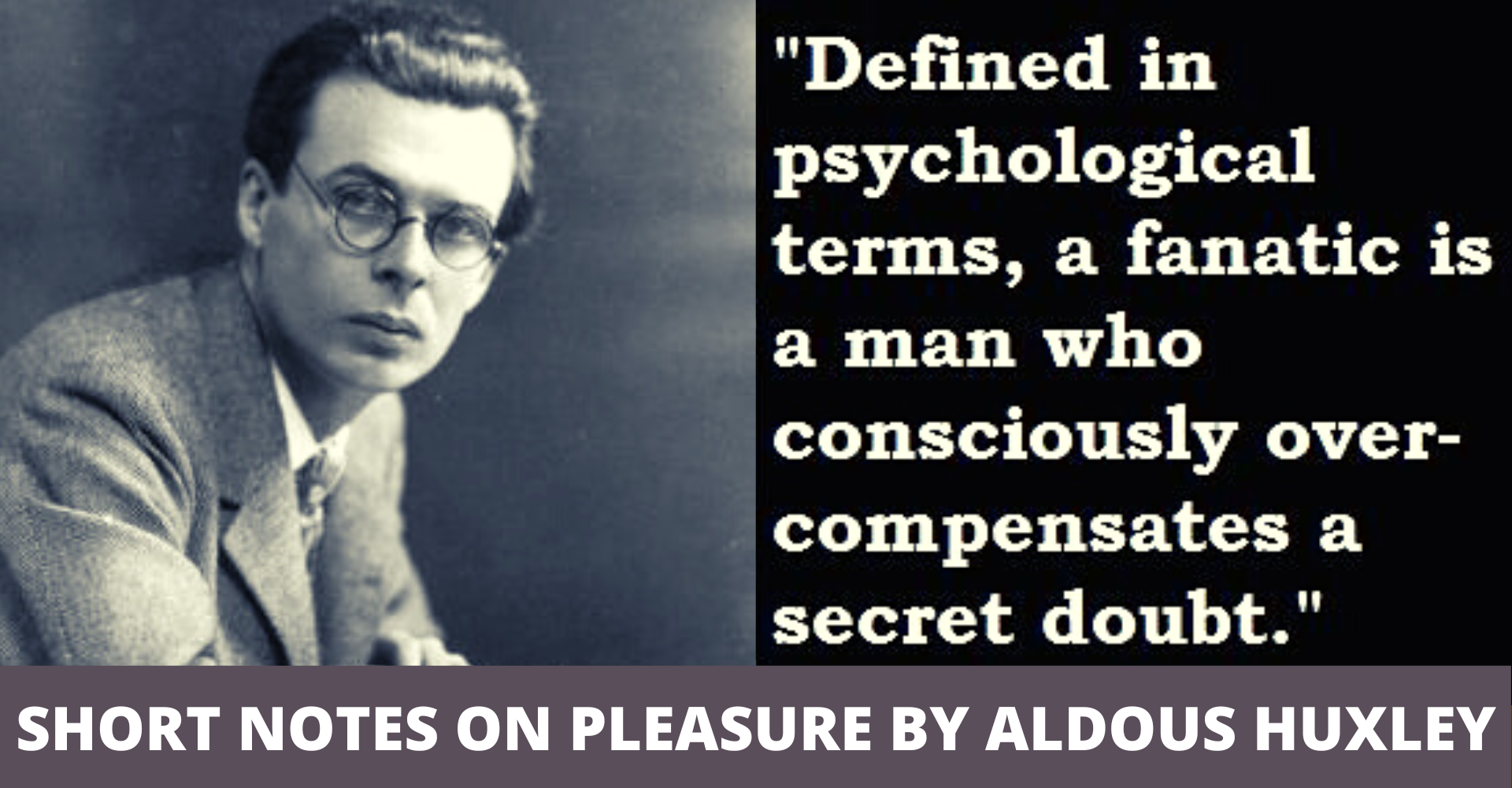It is of course, refreshing experience to turn from the novels of Aldous Huxley to his essays and other pieces of miscellaneous writings. But the common thing that strikes the mind is the fundamental affinity of thought running through them. Deeply interested in the own coming problems of human life and society. He tends to relate everything to the key problem : How to get rid of the cobwebs of our mind and live sanity and sensibly. In this respect, he knows how to be persuading and stimulating to his reader. At the same time, ‘pleasures’ as a token of all this, serves a nice example.
Needless to say the given essay is an extract from Huxley’s book ‘On The Margin’. It brings out the nature and extent of modern dangers which confront the existing civilization. It points out that the great danger and the menace to the modern civilization is not from the different wars and treaties, but from the attitudes and the outlook of the people who are mad after getting readymade pleasure. To quote:
“No, the dangers which confront out our civilization are not so much the external dangers, Wildman, wars and bankruptcy that wars bring after them. The most alarming dangers are those which menace it from within, that threaten the mind rather than the body and estate of contemporary man”.
Mind is no doubt the supreme controller and architect of our life, and it is here at its level of sanity that we are quite different from the lower world of animals. Its capacity to think is the cause of all miracles that humanity achieved.
The civilization, the culture of all owe to it. The right kind of entertainment of pleasures are the devices that renews its power and capacity to think and works with zest. But the undesirable consciousness growing in the pleasures seekers of modern age Is that they don’t make any effort nor do they take initiative in getting pleasures. They want to have it without any intellectual efforts and this in return will tell upon their minds. In fact, the passive participation of mind rob its creative capacity to something new and fruitful for life. Pleasures are meant to remove ennui and monotonousness, make this life of humanity a happy affair to live in. But the way man is nothing to world the blunt readymade and mechanical sort of pleasures, it will deaden his thoughts and make him in imbecile.
Huxley Goes deep down in to the natures of modern pleasures and calls them heroes. He compares and contrasts them with those of Elizabethan and metaphysical moods of having pleasures and finds them utterly fatal to our life and society. He remarks that in both the golden period of the fast people made efforts to get pleasures. It involved this intelligence and the resulting pleasures used to be intelligent and alive. But with the advancement of science and technology mankind has turned idle. He has ceased working and this is eating in to the vitals of his intelligence. Everywhere there is plethora of readymade pleasures, seeking no participation from individuals and the essayist is quite confident that this way life will collapse one day.
To start an illustrate with music, people merely turn on the gramophone or switch on the radio. For visual pleasures they have at cinemas and TV’s. In the field of literature they depend more upon the newspapers and magazines then the power, books of literature. In games and sports also this very tendency persists. This trend of people to have stereotypes pleasures has atrophied the test and liking of the people and Huxley is afraid that this attitude will jeopardise our future generation. He foresees the premature senility of our world and comments that if immediate measures were not taken in the direction, the entire fabric of our modern society will find itself in the cradle of ruins.
Thus, pleasures proves unnice illustration of Huxley’s critical analytical kind of writing. He considers the growth of readymade pleasures is fatal and cancerous to the growth and glow of life. This is really a severe to threat to our existence. Mankind must meant its way. Undoubtedly he has a witty and polished style. It is sparkles with satirical verbs and his vocabulary is richer than any of modern essayist.











